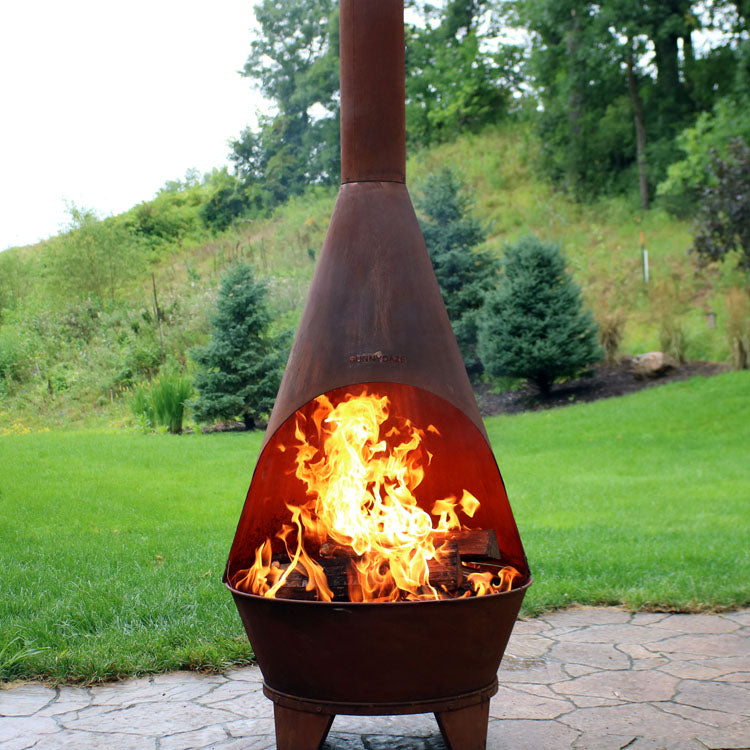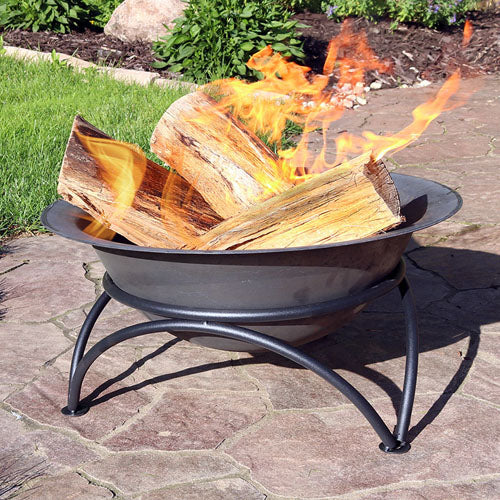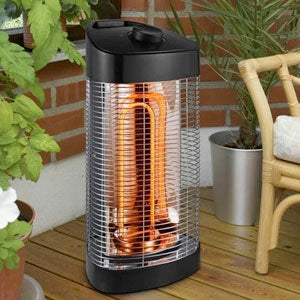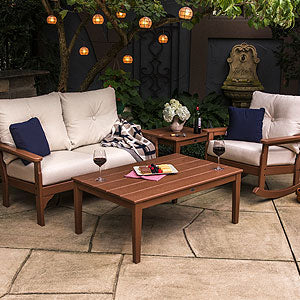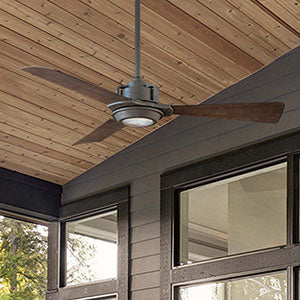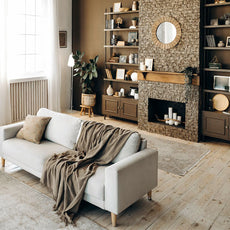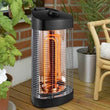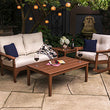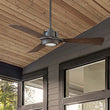Outdoor Living
How To Use A Fire Pit
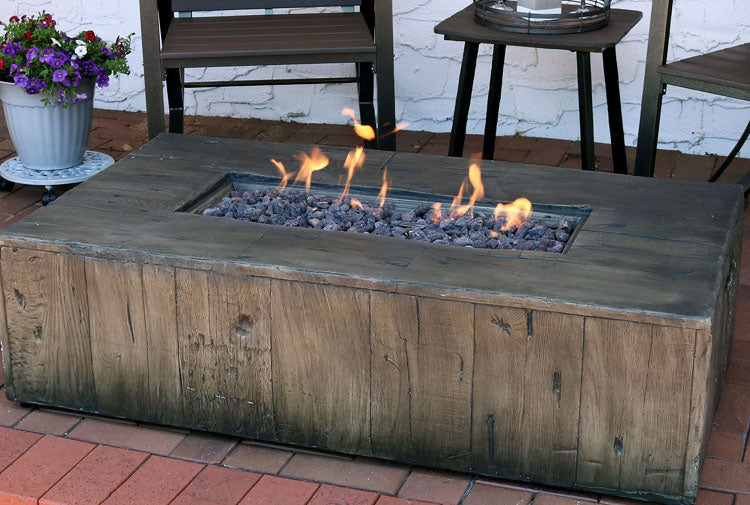
A fire pit adds warmth and ambiance to a patio, deck, backyard, or other outdoor living space. The glow of a fire is instantly relaxing, and the crackling sound of the flames soothes the senses. But starting and maintaining a fire can be confusing and sometimes intimidating enough to prevent people from enjoying this fun outdoor feature. While fire pit operation and safety vary according to the fuel type, the basics remain the same. Before you stoke the first flame, learn more about fire pit types, fuels, and how to use a fire pit properly for optimum safety so you can start enjoying yourself more in the outdoors.
Types of Fire Pits and Fuels
Fire pits come in varied shapes and configurations from bowls to square tables, in small or large sizes, and in styles from uncomplicated to elaborate. Fire pit fuel types include wood, propane, and natural gas. To find the perfect fire pit for your outdoor space, let the fuel type help guide your decision.
Gas and Propane Fire Pits
A gas or propane tank concealed within the unit fuels this type of fire pit. Some units can hook directly to a natural gas line so you never have to worry about refilling a tank. Gas and propane fire pits often feature glass, pebbles, or faux wood inside the fire ring to enhance their aesthetic.
Choose this type of fire pit if: You want warm, pretty flames without dealing with eye-burning smoke or hot embers.
Think twice if: You like to cook over an open flame.
Bonus: These fire pits are easy to start and stop—typically with the flick of a switch or the pressing of a button.
Wood-Burning Fire Pits
Like its name implies, this type of fire pit is fueled by wood. Wood-burning fire pits come in an assortment of styles from deep bowls to shallow disks, in square, round, or rectangular shapes, enclosed or open, and supported on legs or resting directly on the ground. A wood-burning fire pit adds a rustic atmosphere to an outdoor space.
Choose a wood-burning fire pit if: You long for the aroma of authentic campfire smoke and the nostalgic crackling sound of burning wood.
Think twice if: You want an easy-to-maintain fire pit that requires little cleaning.
Bonus: You can roast hot dogs and toast marshmallows over the wood-fueled flames.
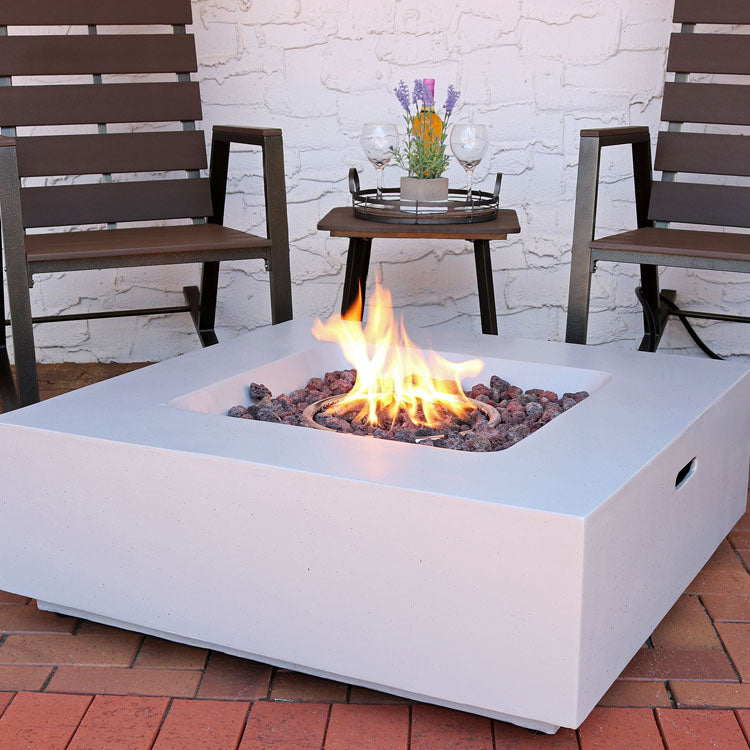
Fire Pit Tables
A fire pit table is ideal for anyone who loves to entertain. Fire pit tables vary in style and dimension from full dining tables that seat six to intimate patio conversation sets for four or fewer. The table features a fire pit in the center, and some come with enough space around the outer edge to accommodate drinks or plates. Most fire pit tables are fueled by gas or propane.
Choose a fire pit table if: You want a low-maintenance fire with little mess to clean up.
Think twice if: You really want a fire pit for warmth when the weather cools. Though they do give off heat, it’s minimal compared to other models.
Bonus: You can use a fire pit table anytime—even without the fire.
How To Start a Fire in a Pit
Start a proper fire in a wood-fueled pit with tinder, kindling, and logs.
Follow these steps to start a fire in a wood-fueled pit:
1. Gather wood, kindling, and tinder. Make sure that everything is dry; any moisture will stunt the fire.
2. Place tinder in the center of the fire pit. Lay kindling on top of the tinder in a crisscross or teepee pattern. Leave gaps in the kindling for proper ventilation.
3. Lay wood on top of the kindling in a teepee or crisscross pattern with gaps for oxygen flow.
4. Light the tinder in several spots with matches, a lighter sick, or other method.
5. Maintain the fire using a long stick or poker to move the coals and embers around or to break off pieces of charred wood. Add more logs to keep the fire going.
Pro tip: If you plan to cook any food over this fire, do not use starter logs, gels, or chemicals that can leach into the smoke and food.
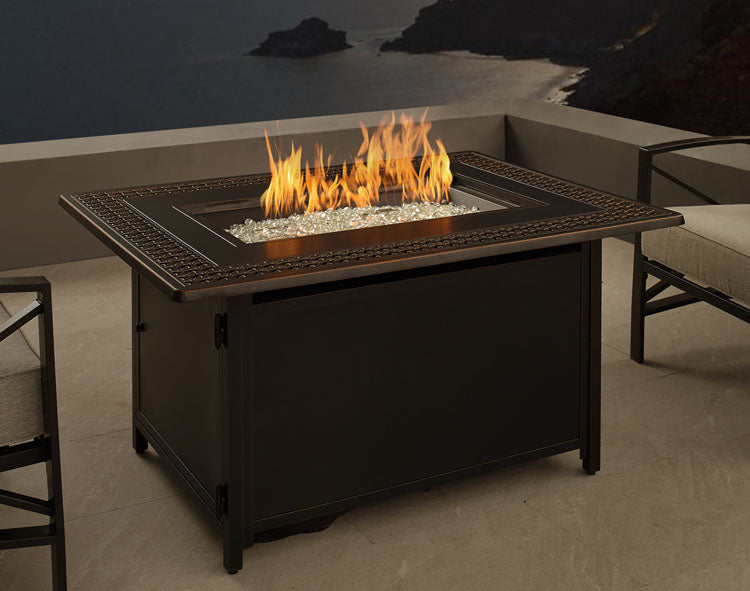
Most gas and propane fire pits come with manufacturer lighting instructions. Turn on the gas or propane using the specified valve, and then place a flame from a long match or lighter stick at the designated spot in the fire pit. Some gas and propane fire pits come with automatic ignitions that start with the push of a button or flick of a switch.
How To Put Out the Flames in a Fire Pit
Start the extinguishing process in a wood-burning fire pit at least 20 minutes before you plan to step away from it. Pour a bucket of water over the fire to douse the flames and coals. Use the poker or stick to move coals and ashes around; if the fire hisses or steams, add more water until the extinguished fire is cool and quiet. Before using the fire pit again, clean out ashes, coals, and leftover wood chunks. Remove this debris with a scoop, shovel, or other fire pit cleaning tools. Most fire pit debris can be discarded in the garbage, but it’s always a good idea to check with your local municipality.
To extinguish the flames in a propane or gas fire pit, simply turn off the designated valve to cut the flame. No cleaning is required.
Place a weather-resistant, waterproof cover over the fire pit after it has cooled to protect it from the elements and help prolong its life.
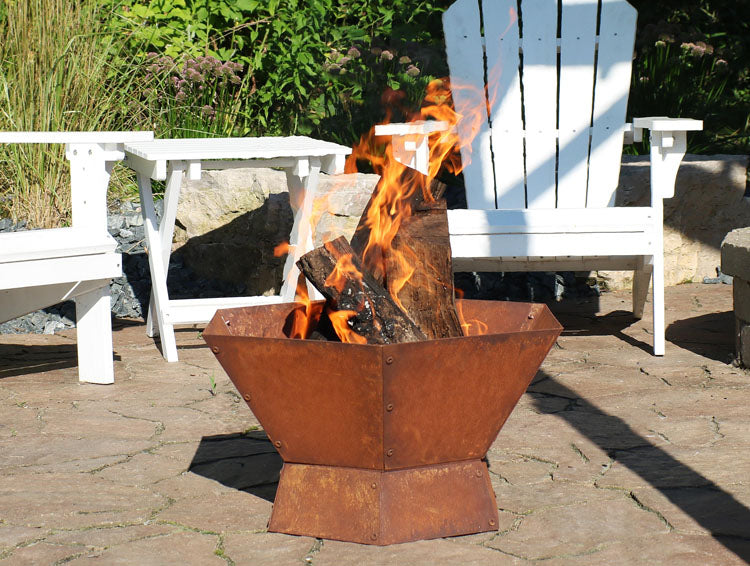
Fire Pit Safety Tips
Before you begin, make sure it's okay to have a fire pit in your area. Check with local officials, the landlord, or HOA to make sure there are no codes or restrictions. Follow these safety tips for gas, wood, and propane fire pits:
Now that you know about types, fuels, safety, and how to start and use a fire pit, follow these ten steps to creating a backyard pub or learn how to design a comfortable outdoor space.

